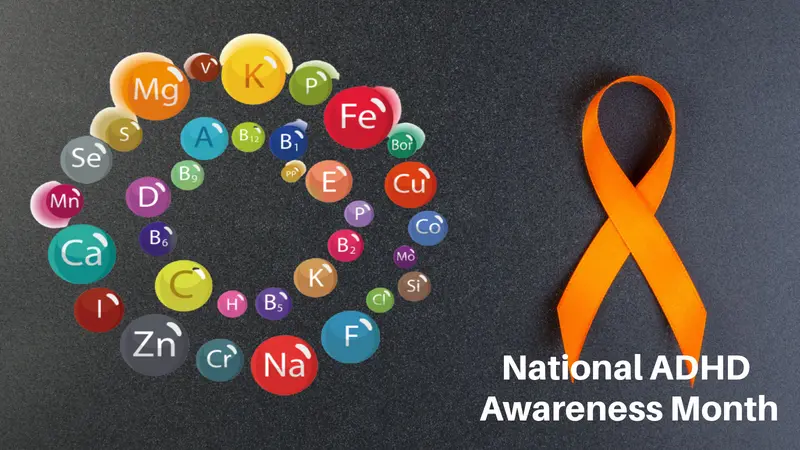

Mental and Behavioral Well-Being

Mental and Behavioral Well-Being
Vitamins and Supplements for ADHD
Because ADHD is a “whole body” condition, you can positively influence the brain through nutrition. Although it’s always best to provide your child the majority of nutrients from whole foods, there can be issues with food supply, access, and quality, as well as picky eating.
Here are some important nutrients that may be helpful to supplement in children with ADHD.
Magnesium
Magnesium is an important nutrient for muscle relaxation, energy production, and activating enzymes. More than 300 functions in the human body involve magnesium, and parents often notice that supplementing magnesium aids sleep and helps reduce tics, anxiety, hyperactivity, and depression in their child.
Studies have shown that magnesium is low in children with ADHD and that supplementation can improve blood levels and significantly decrease hyperactivity.
Depending on the age and needs of the child, magnesium requirements range from about 130-400 mg (or more). There are differing opinions on how much magnesium to supplement in relation to calcium, and calcium to magnesium ratio recommendations range widely from 2:1, 1:1, and 1:2.
B6 and B12
Vitamin B6 helps convert folate to the active form in the folate cycle and is important for methylation, which is responsible for things like myelination of the nerves, allergy response, energy production, and neurotransmitter levels. Vitamin B12 is also an important part of methylation and is the link between the folate cycle and the methylation cycle.
In a study, a combination of magnesium and vitamin B6 reduced symptoms of hyperexcitability (physical aggressivity, instability, scholar attention, hypertony, spasm, myoclony) in all patients after one to six months of treatment.
Folate
Folate is an important B vitamin that is critical for the methylation cycle, as well as for neurotransmitters like serotonin, which regulates executive function, sensory behavior, social behavior, and mood/happiness, which are factors found in ADHD and impulsive behavior.
In children with ADHD, MTHFR (5, 10-methylenetetrahydrofolate reductase) gene variants are common, and poor MTHFR function can cause low folate levels.
Zinc
On a biochemical level, children with ADHD have significantly lower levels of zinc. Zinc has many uses in the body, including growth, repair, immune function, and antioxidant support. It’s also important in the brain, and regulates neuronal excitability. Zinc is also an important co-factor for converting B6 into its active form (P5P), which helps create neurotransmitters like serotonin.
Studies have shown that in ADHD children with zinc deficiency or low plasma zinc concentration, zinc dietary supplementation may be beneficial.
Vitamins A and D
Vitamins A and D are fat-soluble vitamins and are found primarily in animal fats and foods, such as dairy, beef, lard, bacon, liver, cod liver oil, and fish eggs.
Lower vitamin D status has been significantly associated with the likelihood of ADHD, as well as in children born to women who had suboptimal vitamin D levels when they were pregnant.
Omega-3 Fatty Acids
Omega-3 fatty acids control serotonin production and have been found to be low in children with ADHD. Studies have shown that supplementing omega-3s can improve ADHD symptoms, as well as reduce hyperactivity and inattentiveness.
Omega-3s are most readily found in fish and fish oil, and since many children do not consume enough fish, supplementation can be helpful.
Multivitamin-Mineral
A multivitamin-mineral formula typically contains a wide range of nutrients including magnesium, zinc, folate, and all the vitamins and minerals described above, aside from the fatty acids. However, they may not include an optimal full dose.
Studies have shown that a multivitamin-mineral could improve the symptoms of ADHD in both children and adults. In a study on children with autism that included a multivitamin-mineral formula and a healthy gluten-free, dairy-free and soy-free diet, there was significant improvement with in hyperactivity, as well as attention/focus.
REFERENCES
Matthews, J. (n.d.). The best vitamins and supplements for ADHD. https://nourishinghope.com/the-best-vitamins-and-supplements-for-adhd/


 By
By







